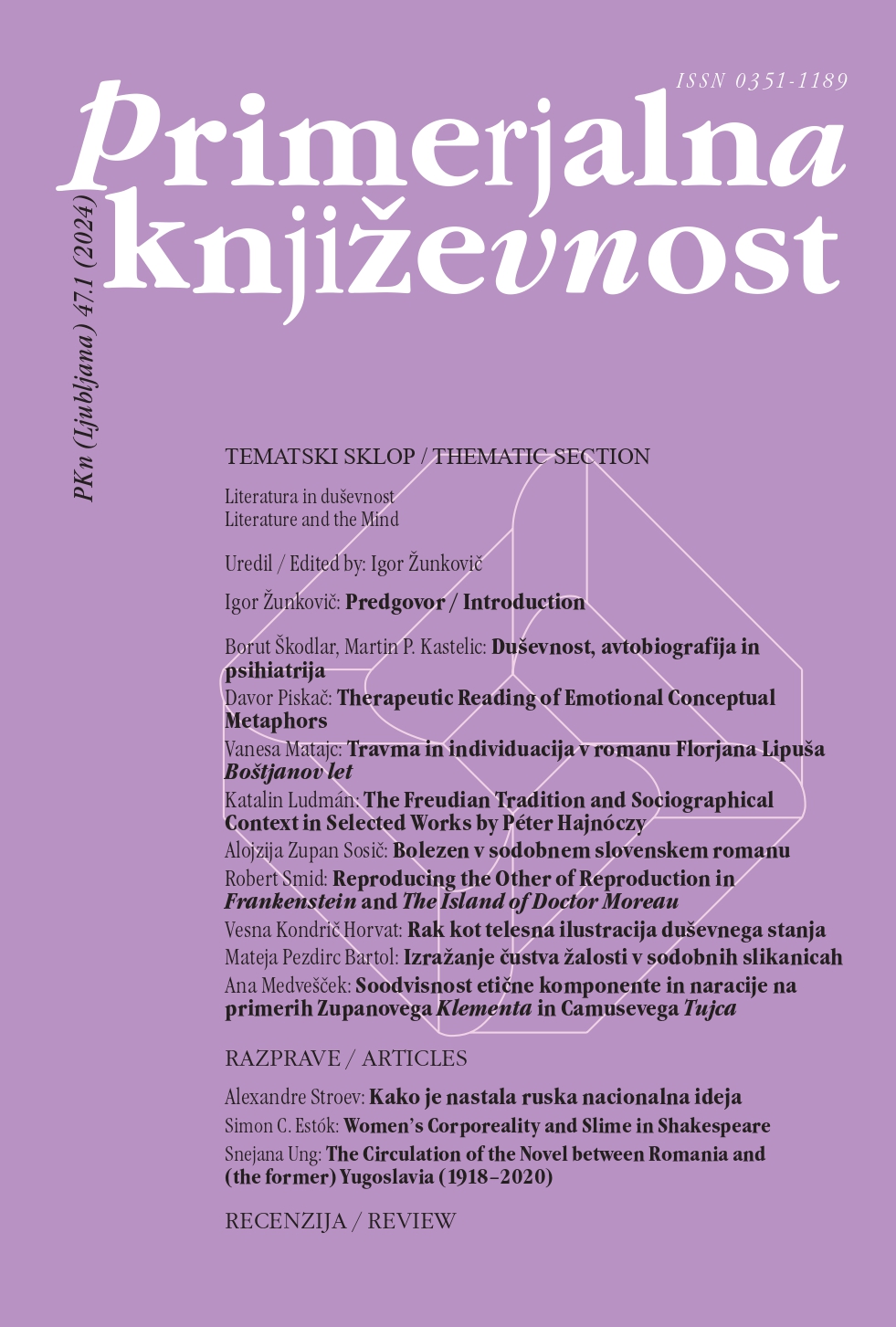How the Russian National Idea Came into Being: The Expansionist Wars and the French Enlightenment
DOI:
https://doi.org/10.3986/pkn.v47.i1.10Keywords:
Russia, cultural history, Enlightenment, national mythology, imperialism, Catherine II, VoltaireAbstract
In the eighteenth century, the Russian Empire saw Rome as a model to be emulated and the Ottoman Porte as an enemy to be destroyed. French and French-speaking authors such as Voltaire, Friedrich Melchior Grimm, the Chevalier d’Éon, Jean Sylvain Bailly, Volney, the Prince de Ligne, Jean Potocki and others portrayed Russia in their works and in their correspondence with Catherine II as the heir to ancient civilization who was destined to revive Greece. The wars against Turkey fueled a political and military mythology that developed in Russia and Europe. The official goal was the liberation of the Orthodox peoples from the Muslim yoke, i.e. the invasion of Crimea, Moldavia and Wallachia as well as the Greek islands. Further goals were the capture of Istanbul, the conquest of Syria and Palestine, the strengthening of the Russian presence in the Caucasus and the attack on Persia. Finally, Poland was to be divided with Prussia and Austria and Ukrainian and Belarusian territories annexed. Territorial expansion and the founding of new cities in the south of the country enabled the Russians to present themselves as descendants of the Scythians, Sarmatians and Amazons and as the legitimate heirs of the princes of Kiev, who had attacked Constantinople and introduced the Orthodox religion. French heralds of Catherine II and Russian victories declared the country to be the cradle of the peoples who had conquered and civilized Europe. This warlike mythology fueled the wars between Russia and Turkey in the nineteenth century and unfortunately also the current war.
References
ARHIVSKI VIRI
Archives du ministère des Affaires étrangères, Mémoires et documents, France, vol. 2187, f. 65.
LITERATURA
Amin Ghali, Ibrahim. Ali Bey el-Kébir et les origines de la pénétration russe en Égypte. Atelier d’Alexandrie, 1979.
Cazes, Jean. »Voltaire inventeur des tanks«. Mercure de France, let. 138, št. 521, 1920, str. 405–414.
Djuvara, Trandafir G. Cent projets de partage de la Turquie. Paris, F. Alcan, 1914.
Fiszer, Stanislaw. Image de la Pologne dans l’œuvre de Voltaire. Voltaire Foundation, 2001.
Heimerdinger, Gabriel. »Voltaire et son chariot de guerre, 1756–1757, 1769–1770, d’après sa correspondance«. La Revue d’artillerie, let. 57, 1934, str. 587–607.
Mihaila, Ileana, in Alexandre Stroev. Ériger une République souveraine, libre et indépendante (Mémoires de Charles-Léopold Andreu de Bilistein sur la Moldavie et la Valachie au XVIIIe siècle). Editure Roza Vânturilor, 2001.
Potocki, Jean. Correspondance. Zv. 5, Peeters, 2006.
Potocki, Jean. Fragments historiques et géographiques sur la Scythie, la Sarmatie et les Slaves. Zv. 1, Dans la librairie des Écoles, 1796.
Rostworowski, Emmanuel. »Voltaire et la Pologne«. Studies on Voltaire and the Eighteenth Century – SVEC, no. 62, Institut et musée Voltaire, 1968, str. 101–121.
Shvidkovsky, Dimitri. The Empress and the Architect: British Architecture and Gardens at the Court of Catherine the Great. Yale University Press, 1996.
SIRIO – Sbornik Imperatorskago Russkago istoricheskago obshchestva. (СИРИО – Сборник Императорскаго Русскаго историческаго общества). Zv. 23, St. Peterburg, 1878.
Stroev, Alexandre. La Russie et la France des Lumières: Monarques et philosophes, écrivains et espions. Institut d’études slaves, 2017.
Volney. Œuvres. Fayard, 1998.
Voltaire in Katarina II. Correspondance 1763–1778. Ur. A. Stroev, NON LIEU, 2006.
Voltaire. Œuvres complètes. Ur. L. Moland, Paris, Garnier frères, 1877–1885.
Voltaire. Œuvres complètes. T. 46 (Anecdotes sur le czar Pierre le Grand; Histoire de l’empire de Russie sous Pierre le Grand). Ur. Michel Mervaud idr., Oxford, Voltaire Foundation, 1999.
Базили, Константин. Палестина и Сирия под турецким правительством. Éditions de Littérature Orientale, 1962.
Екатерина ІІ. Записки касательно Российской Истории. Zv. 1, Typographie impériale, 1787.
Зорин, Андрей. Кормя двуглавого орла… Литература и государственная идеология в России в последней трети XVIII - первой трети XIX века. NLO, 2004.
Каменский, Александр. »Отторженная возвратих: разделы Польши и концеп- ция собирания русских земель«. Труды по россиеведению, let. 6, 2015–2016, str. 220–262.
Портнов, Андрей. »Польша приобретенная, но не обретенная«. Отечественные записки, let. 50, št. 5, 2012, https://strana-oz.ru/2012/5/polsha-priobretennaya-no-ne-obretennaya.
Синицына, Нина. Третий Рим. Indrik, 1998.
Смилянская, Ирина, Елена Смилянская, Михаил Велижев. Россия в Средиземноморье, Архипелагская экспедиция Екатерины ІІ. Indrik, 2011.
Швидковский, Дмитрий. »Ренессансные черты в русской архитектурной куль-туре и дипломатия Венеции конца XV века«. Культура и искусство, let. 1, 2011, https://nbpublish.com/library_read_article.php?id=58026.


